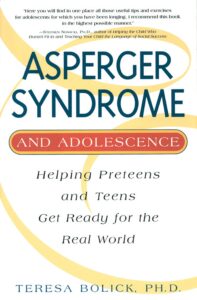While Asperger Syndrome is no longer a separate diagnosis in the Diagnostic and Statistical Manual of Mental Disorders, 5th edition (DSM-5), some people on the autism spectrum still identify more with this diagnosis than autism. My son J was diagnosed at age 4 with Asperger Syndrome, and he will sometimes note his actual diagnosis rather than autism. So what is Asperger’s Syndrome and how does it fit into the autism spectrum?
How do you define Asperger Syndrome?
Psychology Today defines Asperger Syndrome as “a high-functioning form of autism. Although it was once classified as its own condition, Asperger’s is no longer an official diagnosis in the Diagnostic and Statistical Manual of Mental Disorders (DSM). The behavior ascribed to Asperger’s is now encompassed under the umbrella diagnosis of Autism Spectrum Disorder.
People with high-functioning autism/Asperger’s often have difficulty with social situations, and they may not be able to understand the perspectives and feelings of others. However, their language and cognitive skills are often typical.
People with the condition may also engage in specific, repetitive body movements. They often have an orientation toward detail and an interest in systemizing, which can come across as an obsession. Some may show remarkable facility in a narrowly focused and usually non-social area, such as baseball statistics or train schedules.”
Why is it called Asperger Syndrome?

Asperger Syndrome was named after the Austrian pediatrician Hans Asperger. He characterized the traits in boys that he observed in the mid-1940’s. He didn’t name it himself; instead, it was named for him.
There is controversy around Asperger and the work he did for the Nazis in Germany during World War II. Some people are glad it is no longer its own diagnosis for that reason.
Some identify with it as a milder form of autism
Those with this diagnosis are usually on Level 1 of the autism spectrum. Some of their traits or characteristics may be described as milder than others, but it really depends on the individual.
My son J fits into this category well. While he may be described as having a “milder” form of autism, he still struggles with some communication, social situations, executive function and to a lesser degree now with emotional control. With his ADHD, impulse control, focus and hyperactivity are also a challenge for him.
For him, he does identify overall more with being autistic and will usually tell people he has autism. However, every once in a while, he will note he has Asperger Syndrome, which seems to be how many I’ve met who receive that diagnosis will refer to themselves.
Why do some people still refer to themselves as having Asperger Syndrome instead of autism?
When neurotypicals think of autism, many tend to focus on the Level 2 and Level 3 autism that is moderate to severe. For those who received an Asperger Syndrome diagnosis, they choose to still use that instead of considering themselves autistic. Also, since it was their specific diagnosis, they choose to refer to themselves as “Aspie” or having Asperger’s.
Why? For some, they feel it better describes their traits and characteristics, and there is less stigma associated with Asperger’s Syndrome. They also believe they can better navigate the neurotypical world if they don’t have an “autism” label (even though they still have plenty of challenges and can become exhausted from masking so much of the time).
Did your teen or young adult receive an Asperger Syndrome diagnosis? If so, do they identify more with being autistic or Aspie? Leave a comment so that we can share and encourage each other along this journey!
Additional resources
Want to learn more about Asperger Syndrome? Check out these resources that are available.
The Complete Guide to Asperger’s Syndrome (affiliate link)
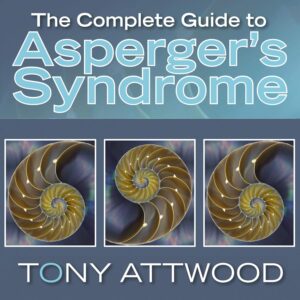
ADHD and Asperger Syndrome in Smart Kids and Adults (affiliate link)
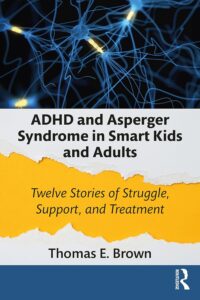
Parenting a Teen or Young Adult with Asperger Syndrome (affiliate link)
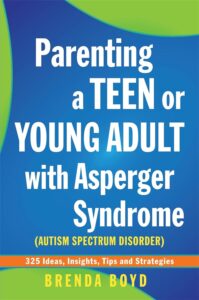
Freaks, Geeks and Aspergers Syndrome: A User Guide to Adolescence (affiliate link)
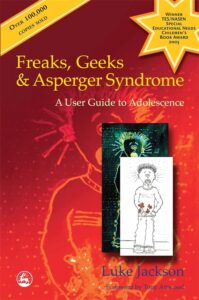
Asperger Syndrome and Adolescence: Helping Preteens & Teens Get Ready for the Real World (affiliate link)
